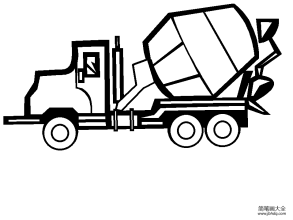Exploring the Essentials of Mobile Crushers: What You Need to Know
- sophieaimix
- Mar 10, 2024
- 3 min read
Mobile crushers have revolutionized the mining, quarrying, and construction industries by providing flexibility, efficiency, and mobility in crushing operations. Understanding the key features, applications, and considerations associated with mobile crushers is essential for businesses seeking to optimize productivity and profitability. Here, we delve into the essentials of mobile crushers, covering their functionality, benefits, applications, and maintenance requirements.
Functionality and Operating Principle
Mobile crushers are versatile crushing machines designed to process various types of materials, including rocks, ores, concrete, and asphalt. They typically consist of a crusher unit mounted on a chassis, equipped with wheels or tracks for mobility. Mobile crushers employ a crushing mechanism that involves applying compressive force to break down large rocks or aggregates into smaller, more manageable sizes. The primary types of mobile crushers include jaw crushers, impact crushers, cone crushers, and hybrid models combining multiple crushing technologies.

Benefits of Mobile Crushers
Mobile crushers offer several distinct advantages over traditional stationary crushing plants, making them indispensable assets in modern construction and mining operations:
1. Mobility and Flexibility:
Mobile crushers can be easily transported between job sites, eliminating the need for multiple stationary crushing plants.
Their compact design and maneuverability enable quick setup and relocation, enhancing operational efficiency and project timelines.
2. Cost Efficiency:
Mobile crushers reduce transportation costs associated with hauling materials to and from stationary crushing plants.
They enable on-site crushing, minimizing the need for trucking and reducing fuel consumption and environmental impact.
3. Versatility and Adaptability:
Mobile crushers can process a wide range of materials, from hard rocks to construction waste, providing versatility for diverse applications.
They can be configured with various crusher types and screening units to meet specific production requirements and material specifications.
4. Productivity and Performance:
Mobile crushers deliver high throughput rates and consistent particle size distribution, optimizing productivity and quality of end products.
Advanced features such as adjustable settings, automatic monitoring, and remote operation enhance performance and operational control.

Applications of Mobile Crushers
Mobile crushers find applications across a spectrum of industries and project scenarios, including:
1. Mining and Quarrying:
Mobile crushers are used extensively in mining and quarrying operations to crush and process raw materials extracted from the earth.
They facilitate efficient extraction of minerals, aggregates, and ores while minimizing environmental impact and operational costs.
2. Construction and Demolition Waste Recycling:
Mobile crushers play a crucial role in recycling construction and demolition waste materials, including concrete, asphalt, and bricks.
They enable on-site processing of recycled materials for reuse in construction projects, reducing landfill waste and conserving natural resources.
3. Road Construction and Infrastructure Projects:
Mobile crushers are deployed in road construction and infrastructure projects to crush and aggregate materials for road base, sub-base, and paving applications.
They contribute to the efficient construction of highways, bridges, railways, and other critical infrastructure components.
Maintenance and Care
Proper maintenance and care are essential for maximizing the longevity and performance of mobile crushers and crusher plant price. Key maintenance tasks include:
Regular inspection of crusher components, lubrication systems, and hydraulic systems.
Scheduled replacement of wear parts such as crusher jaws, liners, and impact bars.
Cleaning and servicing of filters, screens, and conveyor belts to prevent material buildup and equipment damage.
Monitoring of crusher performance indicators, such as throughput, particle size distribution, and power consumption.
Conclusion
Mobile crushers represent a pivotal technology in the modern materials processing landscape, offering mobility, versatility, and efficiency in crushing operations. Understanding their functionality, benefits, applications, and maintenance requirements is fundamental for businesses looking to harness their full potential. By embracing mobile crushers as integral components of their operations, industries can achieve higher productivity, cost efficiency, and sustainability in materials processing endeavors.






Comments